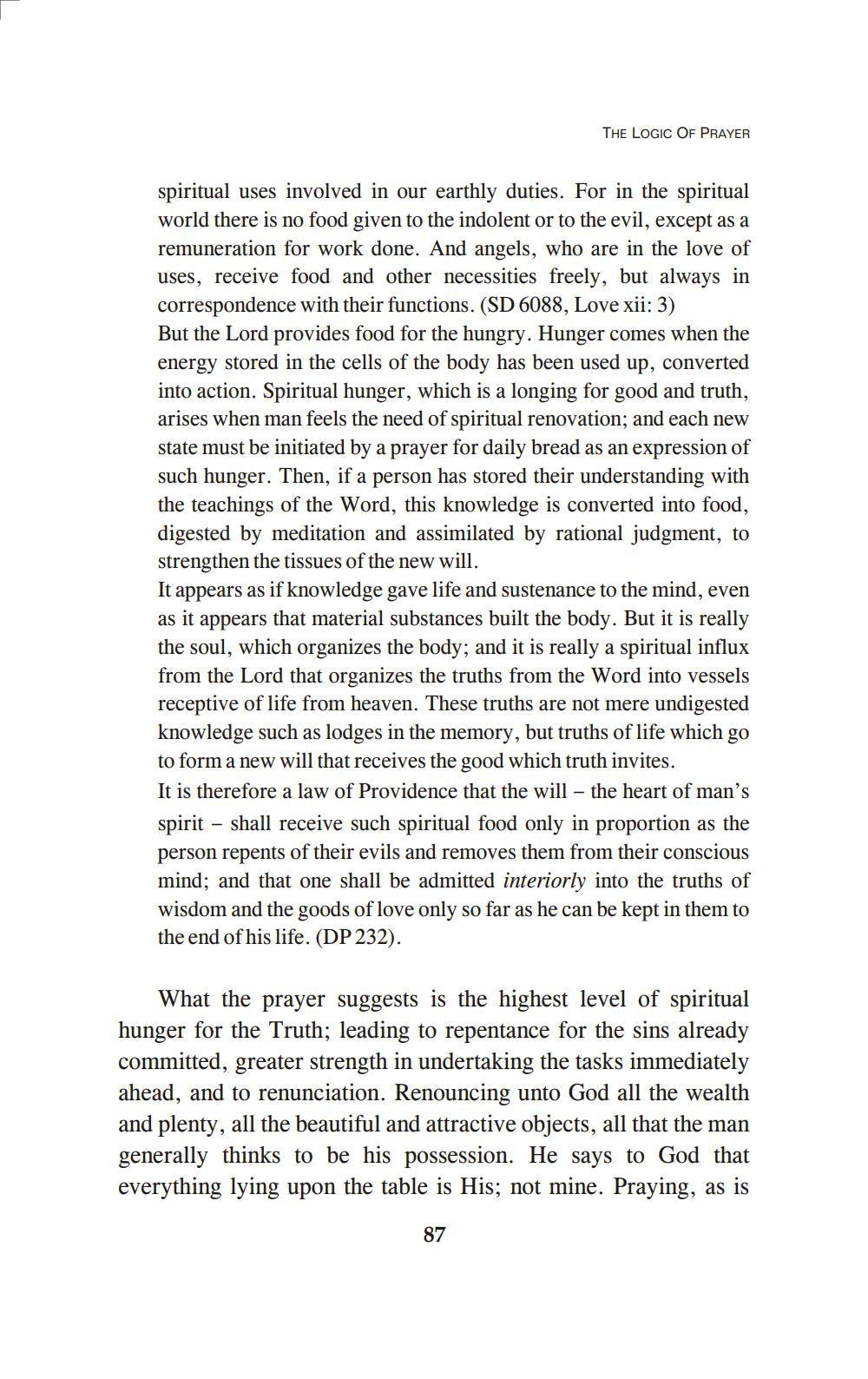________________
THE LOGIC OF PRAYER
spiritual uses involved in our earthly duties. For in the spiritual world there is no food given to the indolent or to the evil, except as a remuneration for work done. And angels, who are in the love of uses, receive food and other necessities freely, but always in correspondence with their functions. (SD 6088, Love xii: 3) But the Lord provides food for the hungry. Hunger comes when the energy stored in the cells of the body has been used up, converted into action. Spiritual hunger, which is a longing for good and truth, arises when man feels the need of spiritual renovation; and each new state must be initiated by a prayer for daily bread as an expression of such hunger. Then, if a person has stored their understanding with the teachings of the Word, this knowledge is converted into food, digested by meditation and assimilated by rational judgment, to strengthen the tissues of the new will.
It appears as if knowledge gave life and sustenance to the mind, even as it appears that material substances built the body. But it is really the soul, which organizes the body; and it is really a spiritual influx from the Lord that organizes the truths from the Word into vessels receptive of life from heaven. These truths are not mere undigested knowledge such as lodges in the memory, but truths of life which go to form a new will that receives the good which truth invites. It is therefore a law of Providence that the will - the heart of man's spirit - shall receive such spiritual food only in proportion as the person repents of their evils and removes them from their conscious mind; and that one shall be admitted interiorly into the truths of wisdom and the goods of love only so far as he can be kept in them to the end of his life. (DP 232).
What the prayer suggests is the highest level of spiritual hunger for the Truth; leading to repentance for the sins already committed, greater strength in undertaking the tasks immediately ahead, and to renunciation. Renouncing unto God all the wealth and plenty, all the beautiful and attractive objects, all that the man generally thinks to be his possession. He says to God that everything lying upon the table is His; not mine. Praying, as is
87




